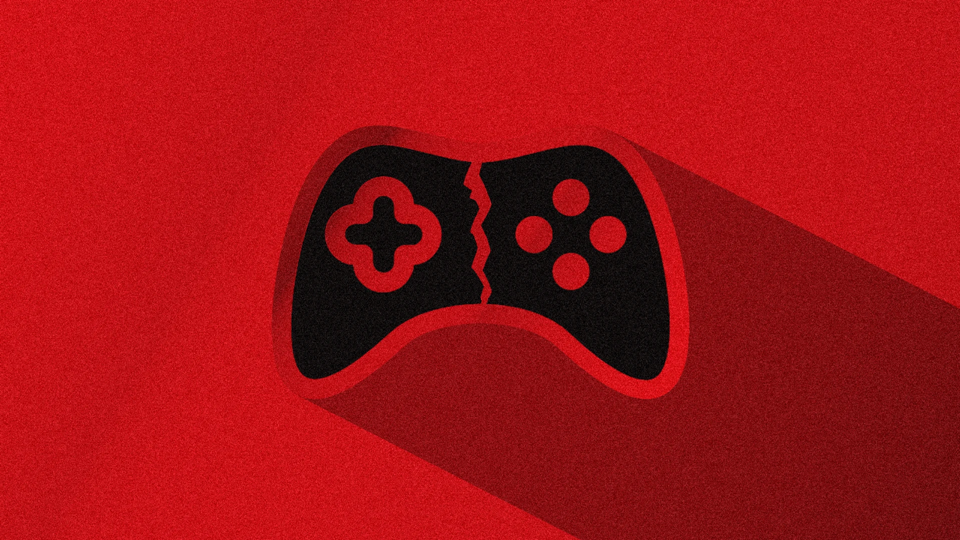What the heck happened at Netflix gaming?
What the heck happened at Netflix gaming?
Netflix just killed its ambitious video game studio before it even launched a single title—but it isn’t giving up on games yet.
BY Chris Morris
Two years ago, Netflix turned heads in the gaming world. It hired former Overwatch leader Chacko Sonny to head a new game studio. The next year, former Halo exec Joseph Staten and God of War art director Rafael Grassetti joined Team Blue, Netflix’s top-tier video game studio, a signal that the streaming service could be preparing to go toe-to-toe with the video game industry’s biggest publishers
And now, in an equally stunning move, Netflix has shut down the project, all before it could even release a single title. Netflix confirmed to Fast Company Tuesday that it has shut down Team Blue and that all three of those executives have left the company. It appears that Netflix may have learned the same lesson Amazon did a little over a year ago: Making video games is a lot harder than it looks from the outside.
Team Blue was working on a “brand-new AAA multiplatform game and original [intellectual property],” according to Staten in 2023. Netflix did not comment on the state of that title, but given the departure of the primary architects, it has likely been canceled.
That’s a setback that could impact Netflix’s ambitions to be a significant force in the video game industry. Netflix has spent the last three years building up its gaming division—not just Team Blue, but also a large catalog of mobile games, both original titles as well as mobile versions of popular console games, like Grand Theft Auto: San Andreas, Teenage Mutant Ninja Turtles: Shredder’s Revenge, and Tomb Raider: Reloaded.
Earlier this year, the company topped Fast Company’s ranking of non-gaming sites that offer games, but despite the accolades, its catalog is still largely an afterthought for consumers, many of whom are either unaware or uninterested that their streaming subscription gives them access to more than 100 titles.
A multiplatform game could have raised awareness—and the résumé of the team behind it would have, if nothing else, caught the attention of the video game press. AAA games aren’t cheap, though. A report last year from the U.K. Competition and Markets Authority (CMA) says that the development budgets alone of AAA games today reach $200 million or higher, with some franchises, like Call of Duty, costing as much as $300 million. Marketing costs can double that total spend.
Netflix, in its third-quarter earnings, reported revenues of $9.83 billion and net income of $2.36 billion. So it has money, but seemingly didn’t like the bet the gaming division was making. That comes as the video game industry, as a whole, is facing sluggish growth. A report from research firm NewZoo is estimating year-over-year growth of just 2.1% this year.
Despite the high-profile departures, Netflix still seems committed to being a part of the video game landscape. In July, it hired Alain Tascan, VP of game development at Fortnite maker Epic Games, as its new president of gaming. He replaced Mike Verdu, who joined the company in 2021 after stints at Zynga, Kabam, and EA Mobile, among other companies. (Verdu remained with Netflix, taking on an undefined new role involving “innovation in game development.”)
The company also plans to exclusively launch a new entry in the popular Monument Valley puzzle game franchise on December 10 and later this year will release a battle royale game set in the world of the Netflix series Squid Game, when that show debuts its second season.
Neither of those are on the same scale as a AAA multi-platform title, though. Whatever Team Blue was working on had a much loftier goal. And it’s unclear at this point if Netflix still plans to aim that high in the gaming world. (Netflix did not speak to its gaming plans other than to confirm the studio’s closure.)
Netflix doesn’t need a multi-platform release to be a success in the gaming world, though. There’s more than respectable money in the mobile industry—and, ultimately, the company is using video games as a way to add value to Netflix memberships. The company last raised the price of its Standard plan in January 2022—and, in July, began phasing out its cheapest advertising-free plan. Citi analyst Jason Bazinet said in a note to investors earlier this month that he expects those prices to increase by 12% next year.
Subscribers might grumble if that happens, but as long as the service offers new episodes of fan favorite programs and introduces new content that pings the pop culture radar, they’re less likely to be concerned about whether there’s a Netflix-made game available on their PlayStation 5.
ABOUT THE AUTHOR
(6)



